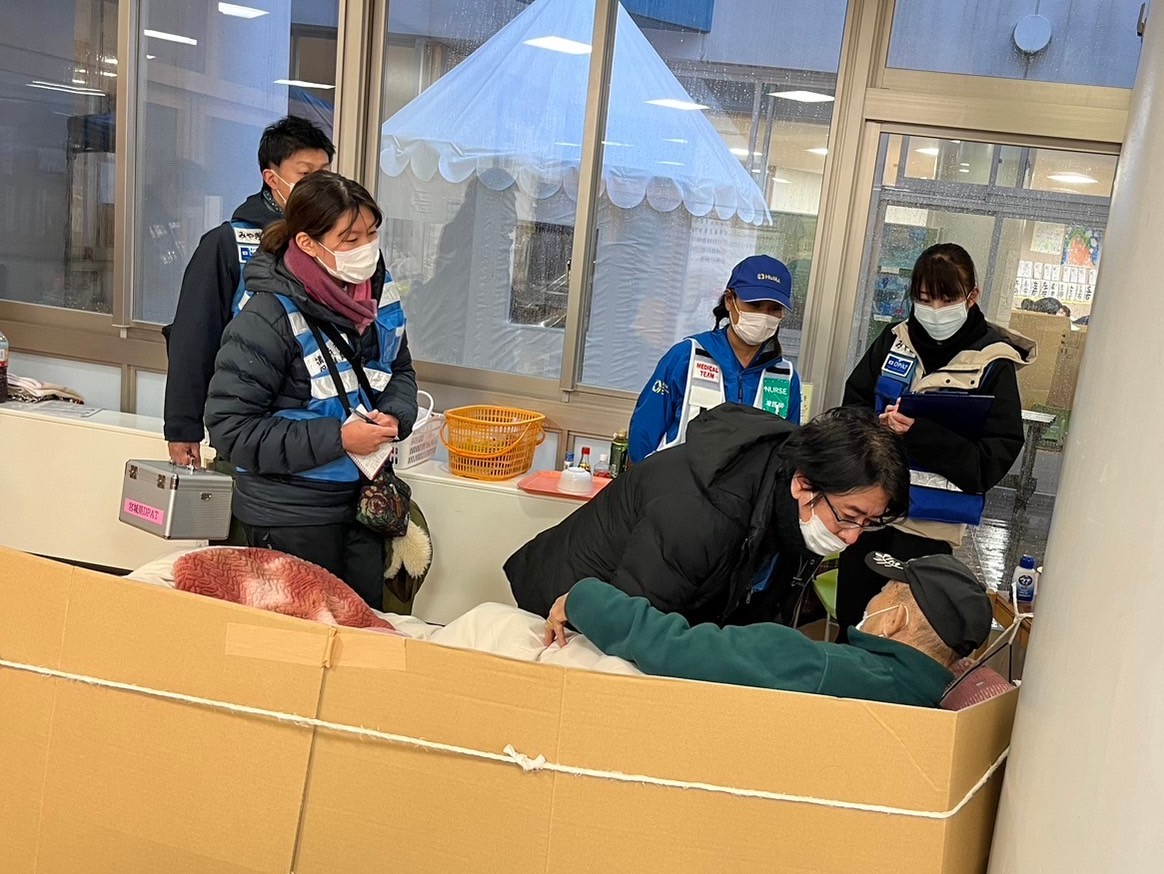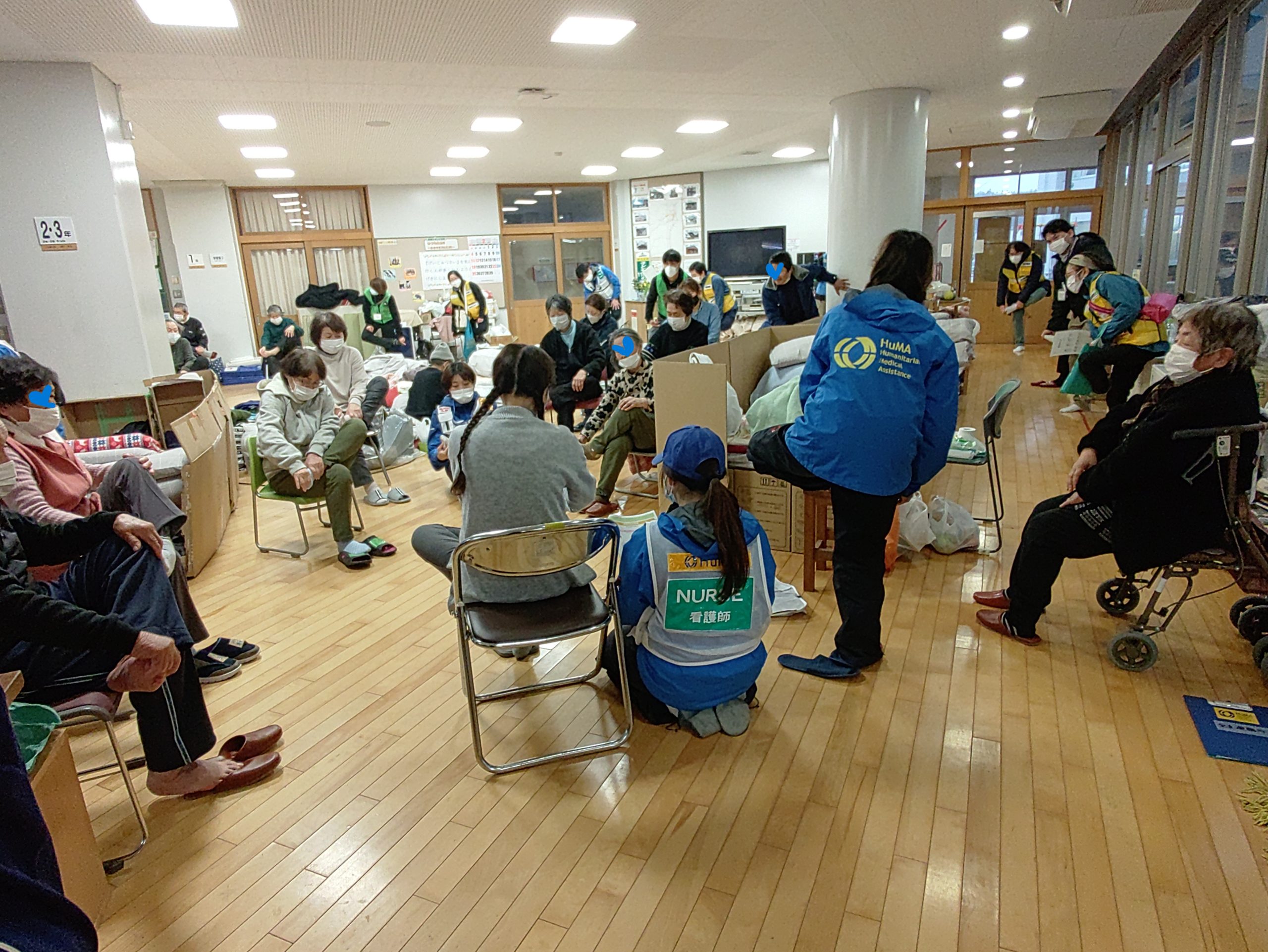Today, the weather changed from yesterday’s mild weather, and rain started to fall in the cold northern sky. Will this cold weather turn into snow? The harshness unique to the Hokuriku region has set in.
At the relief station, a training session on norovirus infection control was held in the morning, followed by a busy day of setting up cardboard beds, mobile clinics, exercises, cooperative work with the DPAT (Disaster Psychiatric Assistance Team) and JDAT (Japan Dental Alliance Team), and then setting up cardboard beds again. Environmental improvement makes evacuees smile.
There was an evacuee that hardly get out of their futons during the day due to fear after the earthquake, and he had not been able to take a bath for more than a month due to leg injury. But today he took a bath. We had hoped that he would just take a foot bath, but we were delighted that he went further than that.
Among the home evacuees, we have seen cases where the earthquake made it difficult for them to visit hospitals and interrupt their medication regimen. One example is a patient who had significant symptoms of high blood sugar and high blood pressure, but refused to go to a hospital. However, after much persuasion, he agreed to go to the hospital with his son.
Many others are still choosing to live in their homes, including a couple who chose to evacuate their home. We visited many times and bonded over the many stories we heard. When a HuMA nurse who is leaving tomorrow expressed her gratitude to the patients, they said, “Thank you for coming such a long way to Suzu City. We will miss you. We’are sorry we couldn’t see you off because of our bad leg.” They said with tears in their eyes, and we were also touched by their words. Tomorrow, we will be replacing HuMA members again in order to continue providing support to the patients with gratitude for the days we spent with them.
 |
 |
| Talk to those we care about with DPAT | Stretching with the evacuees |

